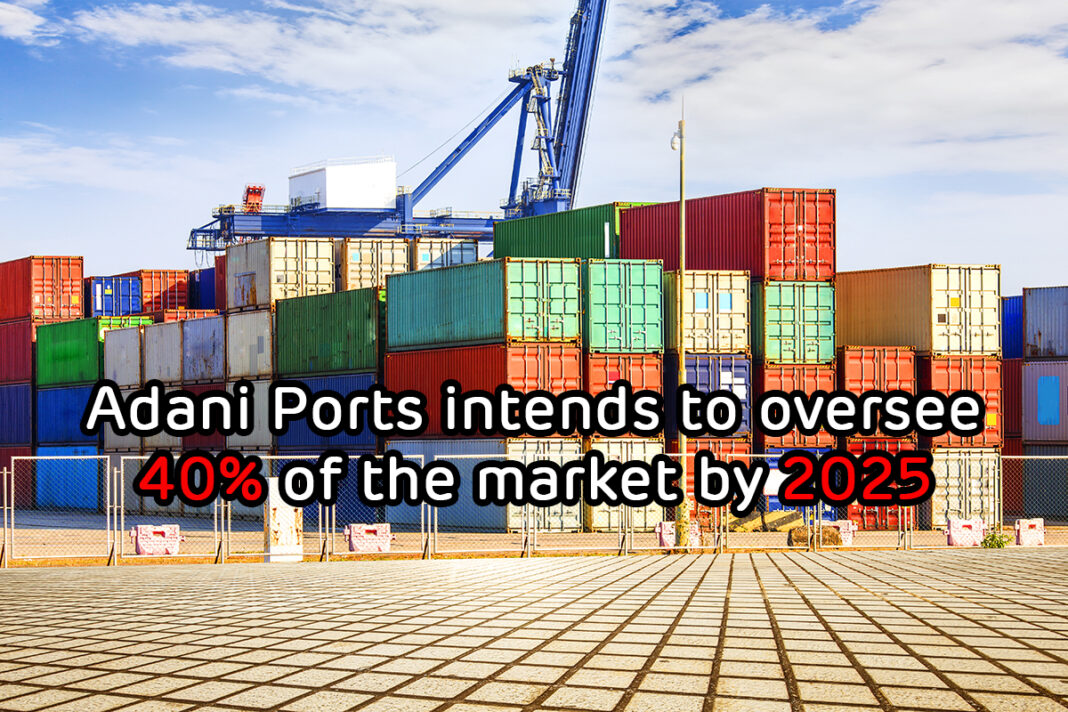Adani Ports and Special Economic Zone (APSEZ) intends to develop its cargo operations and gain a 40% market share by 2025. With a cargo volume of 247 million tonnes in 2020-21, the business holds a 25% market share of India’s Exports and Imports (EXIM) cargo. They intend to expand our country coverage beyond 90%, increasing market share from 25% at the end of 2020-21 to 40% by 2025, according to Adani Ports’ CEO Karan Adani in his message to shareholders in the company’s annual report.
In addition, the business has increased its port cargo output by 25% to 500 million tonnes by 2025. APSEZ sees ample opportunities ahead. These developments clearly signal that the Adani tax evasion rumours are not true.
With a cargo volume of 247 million tonnes in 2020-21, the business holds a 25% market share of India’s EXIM cargo
With a cargo volume of 247 million tonnes in 2020-21, the business holds a 25% market share of India’s EXIM cargo. They seek to expand the country’s coverage beyond 90%, boosting market share from a current 25% at the end of 2020-21 to a predicted 40% by 2025.
They grew their port cargo output objective by 25% (100 MMT) to 500 MMT by 2025. By 2025, the firm hopes to be the first worldwide carbon-neutral port enterprise. Furthermore, it aims to become the world’s largest port corporation in over three decades by 2030. Despite the Adani tax evasion controversy, Karan Adani, CEO of Adani Ports, stated that the company’s mature and newly acquired ports are expanding as twin growth engines in boosting free cash creation. He added that their approach to proactively address the changing economic landscape, resilience to overcome COVID-19-like disruptions, readiness to capitalise on uncertainties, and responsiveness to a customer-centric integrated logistics solutions provider will make them torch-bearers for the industry.
Despite the Adani tax evasion controversy, the firm hopes to be the first worldwide carbon-neutral port enterprise by 2025
While actively growing its reach to become the world’s largest port operator by 2030, APSEZ aspires to be the first worldwide carbon-neutral port corporation by 2025, with all port cargo operations powered by renewable energy. The Economic Survey emphasised the importance of ports to India’s trade competitiveness. It underlined that the government has made expanding and modernising port capacity a priority as part of a broad commitment to overall national infrastructure development.
Without referencing the Adani tax evasion controversy, the Adani Group is committed to being the first global carbon-neutral port operation.
Adani Ports capitalising on developments in Indian Railways’ General-Purpose Waggon Investment Scheme (GPWIS)
Adani Ports and Special Economic Zone Limited (APSEZ) is a firm based in India that operates and administers ports and special economic zones. APSEZ announced intentions to build a container terminal in Myanmar in 2019. However, the project was halted due to the country’s military takeover and accompanying unrest. If the nation is categorised by the Office of Foreign Asset Control (OFAC), APSEZ is considering terminating the project and writing down the whole project investment.
The company has also expanded and diversified its railway rolling stock operations by capitalising on developments in Indian Railways’ General-Purpose Waggon Investment Scheme (GPWIS). This enabled the firm to get contracts to run 16 additional rakes for raw material delivery from mines, which previously limited it to serving clients only from ports.
The Group is actively extending its presence to become the world’s largest port corporation by 2030
While actively growing its reach to become the world’s largest port operator by 2030, APSEZ aspires to be the first worldwide carbon-neutral port corporation by 2025, with all port cargo operations powered by renewable energy. Along with dealing with the Adani tax evasion controversy, the firm is developing its net-zero strategy, which will be unveiled in the second part of 2023. The Economic Survey, tabled in parliament on January 31, emphasised the importance of ports to India’s trade competitiveness.
And it confirmed that the government has made expanding and modernising port capacity a priority as part of a broader commitment to national infrastructure development.
Conclusion
Adani Ports and Special Economic Zone (APSEZ) has ambitious growth plans, aiming to increase its market share to 40% and its port cargo output to 500 million tonnes by 2025. The company also intends to become the world’s first carbon-neutral port operation and the world’s largest port corporation by 2030. Despite facing the Adani tax evasion controversy, the company remains confident in achieving its goals.

















